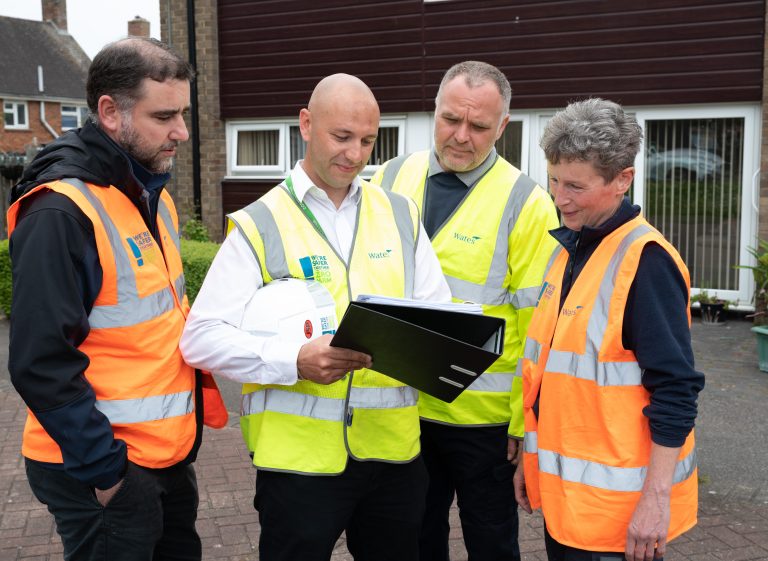Daniel May of Consort reviews the integration of access control systems in healthcare settings, outlining the benefits and key considerations decision makers must make throughout product specification. From patient safety and traversal to the protection of sensitive data and pharmaceuticals, today’s healthcare environments are faced with several operational challenges. And where security remains at the forefront of decision making, modern access control systems may often hold the answers. Hospitals in particular have developed into multi-faceted spaces that house hundreds to thousands of patients, staff and visitors at any one time. In England for example, research has found in the three months leading to June 2023, an average of 44,626 people visited major hospital A&E departments each day, with over 16 million attendances typically recorded over the course of a year – not to mention an additional 9 million logged at other minor units. For any building, this level of sustained footfall can invite severe security tests. With that, the need to deploy effective physical security systems in healthcare is clear. And so, as access control continues to become more readily adopted and new products enter the market, decision makers are reminded to consider the requirements of their building, ensuring they select the solutions most suited to their settings and budget. Security controlled Patient safety will always remain top priority in healthcare settings, and where matters of health and social care come into question, a diverse set of professional regulatory bodies are tasked with setting and maintaining high standards. When it comes to healthcare premises specifically, patient security and perimeter security often come hand in hand and are amongst the most pressing of challenges that decision makers must face. To help address operational planning and potential design concerns in the NHS, the Health Building Note (HBN), provides general design guidance for healthcare buildings under HBN 00-01 – citing the use of access control measures as a way of maintaining security and protecting the safety of patients, staff and visitors. Hospital buildings for example, must control varied levels of access for a number of operational and security purposes. Routine scenarios exist where vulnerable patients are under monitoring and thus refrained from exiting the premises for their own safety, while at the same time, permitted staff must be able to reach their patients and medicines when required. For this, the use of access control is key. Equally, access credentials can also help management teams keep track of those who may be entering or exiting rooms with equipment and pharmaceutical supplies, deterring any unwanted visitors and opportunists in the process. On a similar note, regulations have set a minimum standard for how personal data should be stored and managed in healthcare environments, giving decision makers an added responsibility to regulate staff-controlled areas with patient medical records. While instances of personal data breaches are rare, healthcare facilities and professionals are at legal risk should confidential data be found misused or missing. As such, the incorporation of access control systems has become essential in keeping data storage areas secure, with intuitive online systems capable of permitting access to staff with the correct credentials while simultaneously tracking who has requested clearance at digital entry points. To function effectively, healthcare facilities must always be perceived as a safe place by the people who reside within them. Besides, efficient residential management systems also play a crucial role in ensuring organized care within these specialized environments like group homes for people with developmental disabilities. Such systems integrate various features, including patient monitoring and access control, simplifying the complex web of responsibilities faced by care providers. To function effectively, healthcare facilities must always be perceived as a safe place by the people who reside within them. Besides, efficient residential management systems also play a crucial role in ensuring organized care within these specialized environments like group homes for people with developmental disabilities. Such systems integrate various features, including patient monitoring and access control, simplifying the complex web of responsibilities faced by care providers and as HBN guidance implies, a unified physical security system can help address key safety and security concerns while enhancing patient and staff experience. Opportunely, today’s access control systems are more accessible and adaptable than ever and combine several technologies such as mechanical locks and automatic doors with electronic access credentials in the form of smartphone apps, badge readers and biometric scanners. By integrating these systems into the building’s existing infrastructure, healthcare professionals are better equipped to control the sheer volume of people entering and exiting the premises without impairing the general flow of movement and coordination around the facility. Better by design Despite the clear benefits offered to healthcare facilities, there are a number of considerations to be mindful of when choosing an access control solution. Poorly implemented systems can have an adverse effect on security and functionality – quickly costing healthcare organisations time and budget to rectify and replace the inadequate products that don’t meet the building’s requirements. For that reason, decision makers and design teams are reminded that there is no single solution that fits all healthcare buildings. As such, it’s crucial for decision makers to understand the systems that are being put in place throughout each of the touchpoints in their facility. Clear collaboration is required during periods of specification, where together, teams can ensure the selected product works on all angles, from meeting fire safety and sustainability standards to aesthetics and scalability. Frequently overlooked, scalability is a key area that decision makers must review when selecting access control systems. Such is their diverse nature; healthcare facilities can often change and develop as years go by, and by selecting a system that facilitates growth – such as a cloud-based solution – security and efficiency is long-established. While modern access control products are known for seamless integration, there are some systems that may restrict the ability to use different vendors throughout the remainder of the building’s infrastructure. This, in effect, causes a monopolisation of products throughout the estate, which can have an adverse effect













